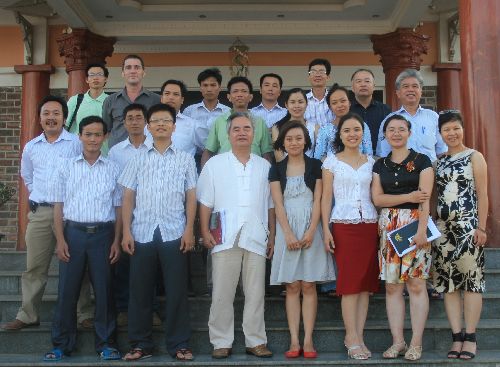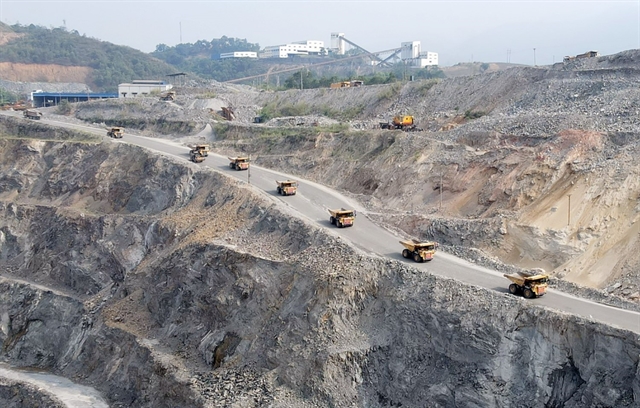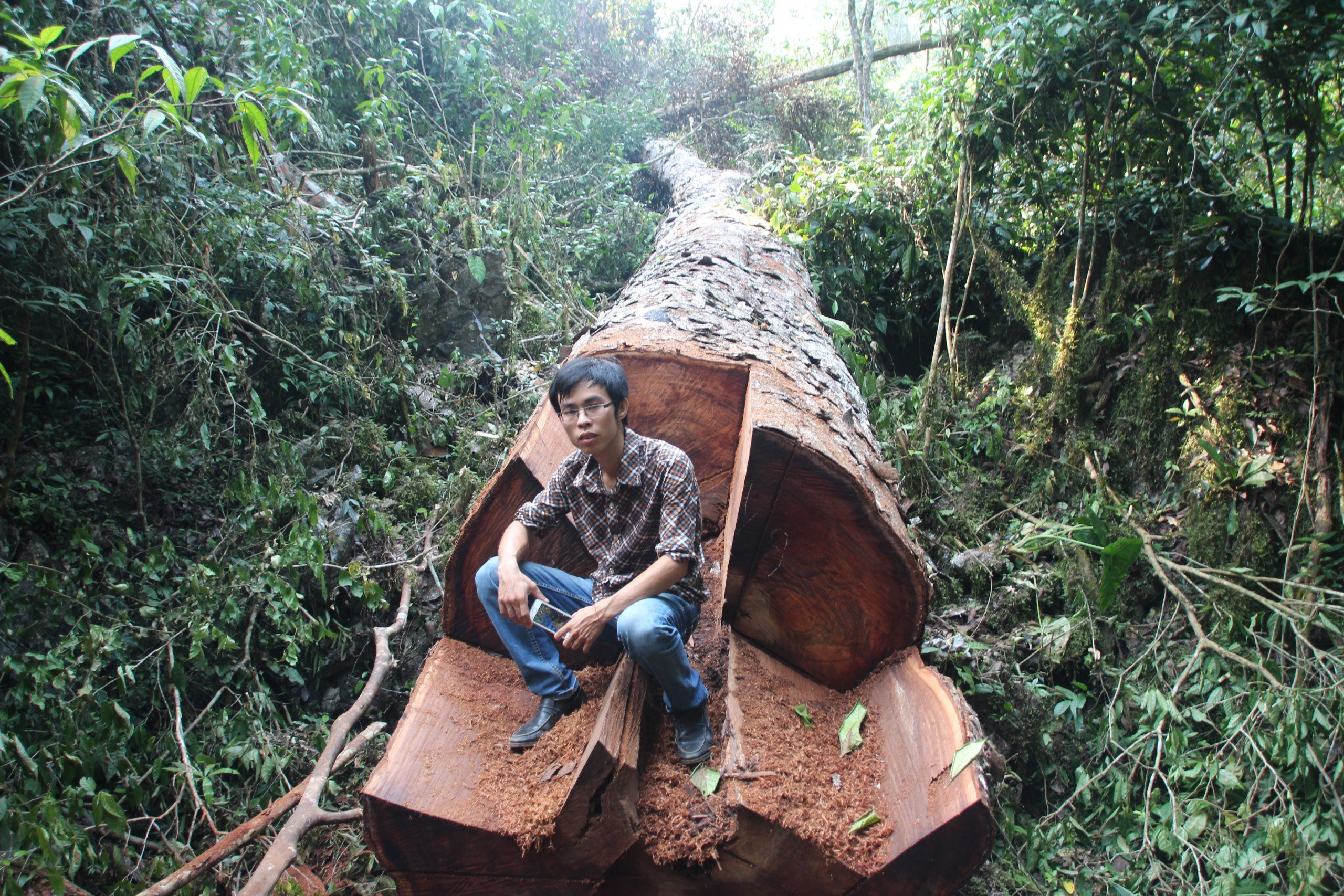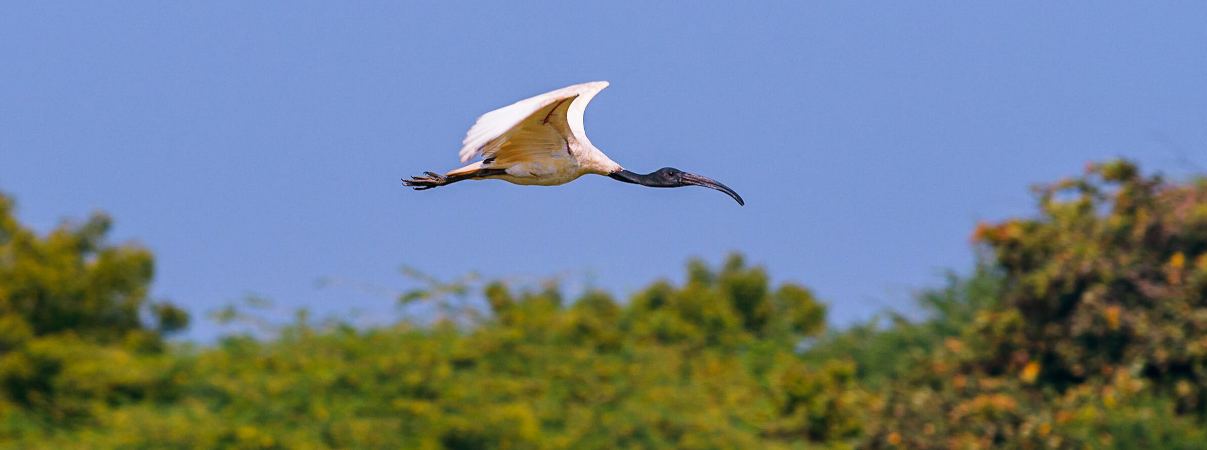Director of the People and Nature Reconciliation (PanNature) Trinh Le Nguyen said mineral resources were public assets owned by the entire people.
Thus, local people in the area that mining activities happened had the right to know specific information about the mine, what type of minerals, and who was assigned to exploit them by the State and local authorities, and what benefits the State, businesses and communities would enjoy from the mining activities, he said.

Localising conservation in Vietnam
People and Nature Reconciliation (PanNature) is a young not-for-profit organisation working on nature conservation. They are trying to use wide experience, varied skills and contagious motivation to help lead a community-based movement to preserve Vietnam’s natural heritage and promote sustainable development nationwide. We interviewed Trinh Le Nguyen (TLN), the founder of the organisation on the occasion of 6th year since its establishment.
The Babbler – How did you found the organisation?
TLN – PanNature started six years ago, in 2004, by a small group of young Vietnamese, who had gained some experience working with international conservation organisations and projects. PanNature’s founders hoped to fill the gap in active participation of local nongovernmental organisations in the area of natural resource management and conservation – the space that used to be dominated by state and international institutions. The challenge was to formulate a purely Vietnamese nonprofit, which is capable of creating positive changes and contribution towards better governance of the country’s natural resources. Our approach evolved from solely
awareness and education then expanding to a more holistic direction that combines field-based conservation initiatives, media and communication, and policy research and advocacy.

PanNature’s staff and advisors during the summer retreat program in 2010. Photo: PanNature.
The Babbler- What difficulties did you and PanNature encounter and how did you overcome them?
TLN – The biggest challenge for us was to build up a strong committed team within a limited financial capacity and organisation development experience. In the staff recruitment, we give more preference to candidates with long-term commitment, dedication, and strong field experience as well as candidates from forest communities, especially ethnic groups. Funding is another challenge that we, like most of other local organisations, have to face.
The Babbler –After six years of operations, you must be proud of some PanNature’s achievements such as….
TLN – Although being a young emerging organisation, PanNature’s efforts, especially policy-focused work, have been recognised by the public, our partners, and state agencies in the process of revising or drafting some laws and policies. Our online news service website ThienNhien.Net has gained strong credentials among conservation community, government agencies and the mainstream media. In recent years, PanNature has expanded our connection to regional level with different networks.
The Babbler – Give me some information about ongoing projects that PanNature is doing….
TLN – PanNature has shifted from the conservation awareness and education focus to more inter-disciplinary and holistic approach in our programmes and activities. In 2009 and 2010, PanNature was involved in policy initiatives to introduce and promote good governance and more transparency in natural resources sector through active participation in providing inputs and analysis of laws and legislation on protected area management, biodiversity conservation and livelihood needs, benefit sharing and co-management in special-use forest, river and watershed administration, mining and extractive industries, hydropower, environmental taxation, payment for environmental services and carbon finance mechanism, and litigation in environmental pollution disputes. These issues are also addressed by our communications and field-based interventions. For example, with a grant from CEPF, PanNature’s Communication Department is currently working with national and local journalists to monitor and bring up multi-facetted stories from the field to challenge the goals of balancing biodiversity conservation and economic development plans in the Northern Limestone Highland of Vietnam.
Another long-term field intervention project that we’re implementing in Hang Kia – Pa Co Nature Reserve addresses the pressure on the protected area from local communities.
The Babbler – What’s your view on Conservation in Vietnam?
TLN – Personally, my view is that Vietnam needs more active participation and concerns from domestic groups and the public to counter-balance the development policies and nature conservation. There should be more work on providing practical technical and policy solutions for leveraging development and conservation. PanNature hopes to contribute to more “weight” in the side of conservation in the development process of the country.
At grass-root level, we believe that local communities taking part in conservation activities in parks and protected areas should be considered as providing public services. They should be paid accordingly for their services from the state budget. PanNature will dedicate our efforts to develop field-based model and advocate for this approach over the long term.
Source: The Babbler No.36, December 2010 (Page 36). Available for download from CEPF-RIT website.



